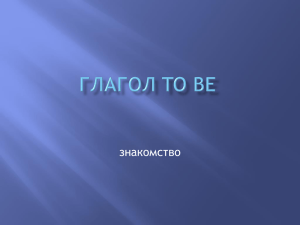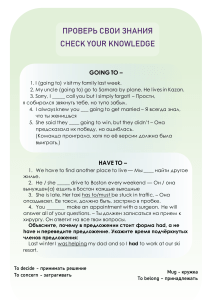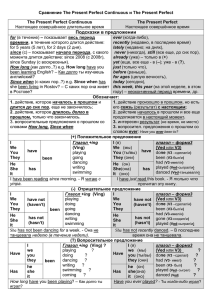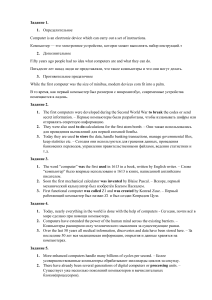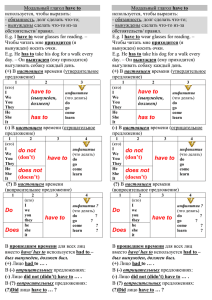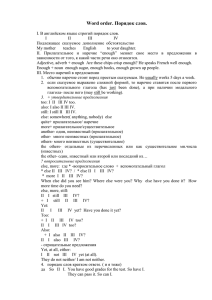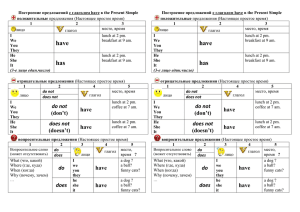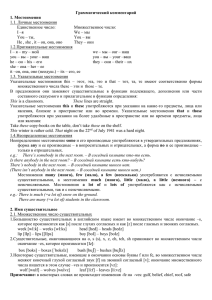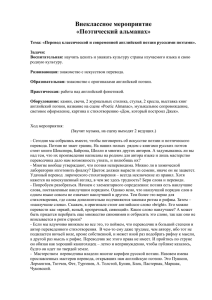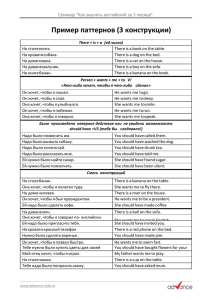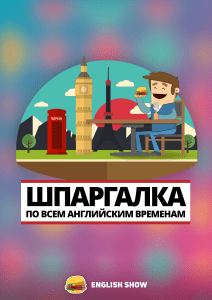Разработчики: Хедер Е.Н., Медведева В.В., Головакина Е.Н., Лаврухина Н.А.
реклама
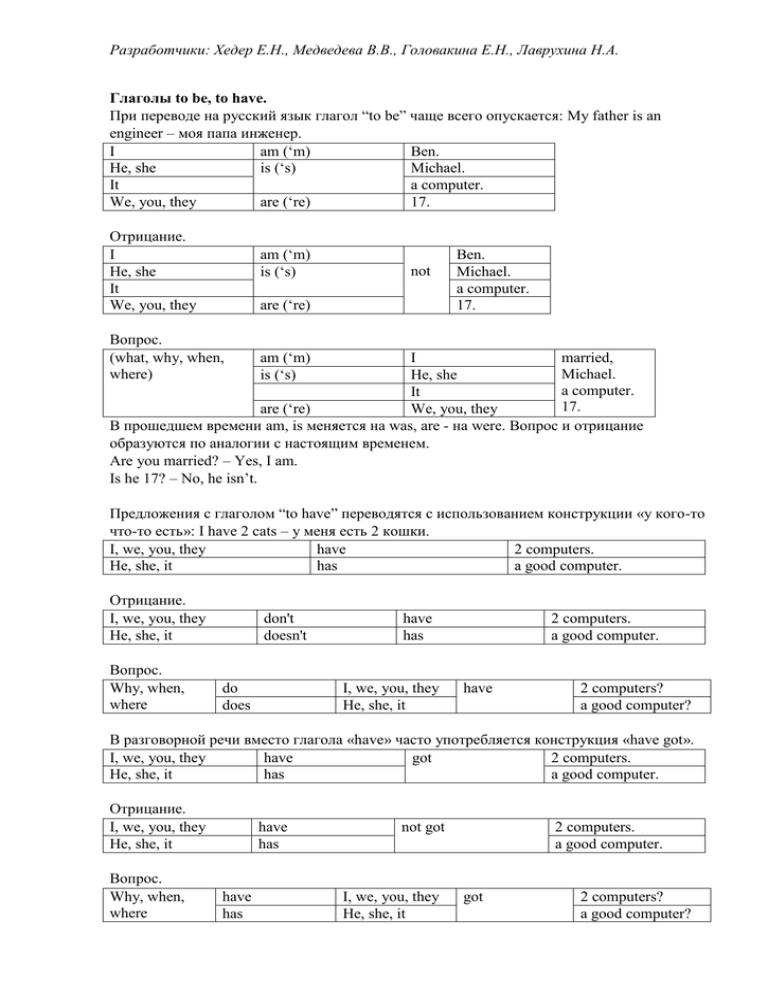
Разработчики: Хедер Е.Н., Медведева В.В., Головакина Е.Н., Лаврухина Н.А. Глаголы to be, to have. При переводе на русский язык глагол “to be” чаще всего опускается: My father is an engineer – моя папа инженер. I am (‘m) Ben. He, she is (‘s) Michael. It a computer. We, you, they are (‘re) 17. Отрицание. I He, she It We, you, they am (‘m) is (‘s) not are (‘re) Вопрос. (what, why, when, where) Ben. Michael. a computer. 17. am (‘m) is (‘s) I married, Michael. He, she a computer. It 17. are (‘re) We, you, they В прошедшем времени am, is меняется на was, are - на were. Вопрос и отрицание образуются по аналогии с настоящим временем. Are you married? – Yes, I am. Is he 17? – No, he isn’t. Предложения с глаголом “to have” переводятся с использованием конструкции «у кого-то что-то есть»: I have 2 cats – у меня есть 2 кошки. I, we, you, they have 2 computers. He, she, it has a good computer. Отрицание. I, we, you, they He, she, it Вопрос. Why, when, where don't doesn't do does have has I, we, you, they He, she, it 2 computers. a good computer. have 2 computers? a good computer? В разговорной речи вместо глагола «have» часто употребляется конструкция «have got». I, we, you, they have got 2 computers. He, she, it has a good computer. Отрицание. I, we, you, they He, she, it Вопрос. Why, when, where have has have has not got I, we, you, they He, she, it 2 computers. a good computer. got 2 computers? a good computer? Разработчики: Хедер Е.Н., Медведева В.В., Головакина Е.Н., Лаврухина Н.А.
